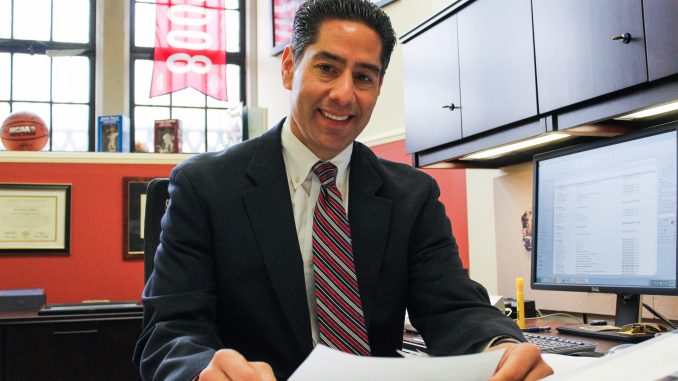
If the Pennsylvania state budget impasse continues, Temple will end its $12,000 tuition discount for Pennsylvania students as early as Spring 2018 and non-union employee salary increases will continue to be delayed, university officials said.
The impasse is due to a $2.2 billion deficit for the agreed-upon spending plan among legislators. There is a chance Temple’s $150 million allocation, as well as the budget for other state-related universities, could be taken away in order to balance the budget.
Per the Pennsylvania constitution, state-related universities — Temple, University of Pittsburgh, Lincoln University and Pennsylvania State University — are “non-preferred” institutions, so their funding is not a top priority.
“The argument is that they are not state institutions, and the state government should use the budget to fund state institutions and programs first,” said Joseph McLaughlin, former senior adviser to former Gov. Ed Rendell and the assistant dean for external affairs of the College of Liberal Arts. “[State-related university allocations are] not enough, alone, to make up the shortfall, or even have a major impact on it.”
If the budget is not passed before Spring 2018, in-state students will be assessed a “surcharge” that could be reversed and refunded if the budget is later passed, said Ken Kaiser, the university’s chief financial officer and treasurer. In-state students would be forced to pay $6,000 more each semester.
“If we were to lose all the funding, we would definitely take a look at any opportunities to be more efficient and enhance services to students that would now be paying more,” Kaiser said. “Tuition would unfortunately be the number one strategy, but looking for efficiencies would always compliment that.”
President Richard Englert told non-union employees their salary increases would be frozen because of the budget impasse.
“During [budget] delays, Temple faces many budget decisions, not the least of which are salary adjustments and bonuses for non-bargaining-unit employees,” he wrote in an Oct. 13 email obtained by The Temple News.
Cutting state education funding is a possible — though unlikely — solution to the budget shortage, university officials said.
“Everyone has been supportive of funding state universities,” said George Kenney, the senior adviser to the president for government affairs and a former state representative. “[Temple] has had a relationship with the governor and state legislature for over 50 years.”
The budget must be passed by the time spring tuition bills are posted on Nov. 27 in order for Temple to continue offering in-state tuition discounts and staff raises, Kaiser said.
“It’s the layer of uncertainty here that has us in this position,” he added.
McLaughlin said he believes budget negotiations will go on for several weeks before it’s passed.
Temple uses state-allocated money in its “general education fund” for faculty salaries, classroom supplies and other services for students, Kaiser added.
Because in-state residents pay Pennsylvania taxes that go toward the budget, Kaiser said they are supposed to get a break on tuition.
Temple has been in negotiations with the state about the budget impasse, Kenney said.
“We’re highlighting the importance of this funding and the importance it has to Temple’s relationship with state legislature,” Kenney added.
The university’s administration urges students, staff and Pennsylvania residents to call their state representatives and request that Temple be given full funding.
“Community advocacy is part of our efforts to get [the budget] over the finish line,” Kenney said.
The university is hopeful the state will not resort to cuts in Temple’s budget.
“The board and the university would still like to be true to the mission of accessibility and affordability,” Kaiser said. “But again that depends on the state’s partnership.”


Be the first to comment